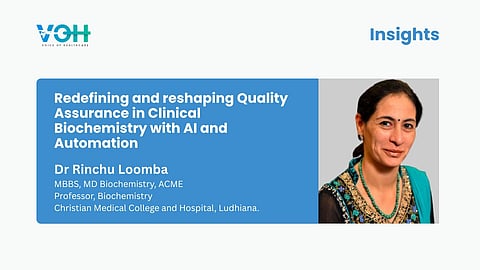

The integration of artificial intelligence (AI) and automation is profoundly reshaping quality assurance (QA) in clinical laboratories, heralding a new era of heightened precision and efficiency. AI's advanced algorithms analyze vast, complex data sets, revealing subtle patterns and biomarkers that are often imperceptible to human analysis. This capability not only facilitates earlier and more accurate disease detection but also enhances the interpretation of test results, enabling more informed and swift diagnostic decisions. Automation complements this by standardizing repetitive tasks, such as sample handling and data entry, which significantly reduces the potential for human error and procedural inconsistencies. AI-driven quality control checks, operating in real-time, can continuously monitor these processes, ensuring the reliability of results and strict adherence to regulatory standards like those from the Clinical Laboratory Improvement Amendments (CLIA).
Beyond these direct applications, AI and machine learning are revolutionizing predictive maintenance for laboratory equipment. By analyzing performance data, AI can forecast potential equipment failures before they occur, allowing for proactive maintenance and preventing costly downtimes that could impact patient care. This also extends to supply chain management, where AI optimizes inventory levels and predicts demand for reagents and consumables, further streamlining lab operations.
However, this technological evolution presents significant hurdles. The high initial investment for AI and automation systems remains a major financial obstacle for many laboratories. Ethical considerations are equally critical, demanding careful navigation of data privacy, algorithmic bias, and the transparency of "black box" AI models to maintain patient trust and equitable healthcare. The potential for over-reliance on technology could also diminish the essential manual skills and critical oversight of laboratory professionals.
Success hinges on a balanced approach, marrying technological advancement with clinical relevance and ethical standards. This necessitates the rigorous validation of new systems, a steadfast commitment to transparent and unbiased AI development, and a continuous focus on professional development. By ensuring that human expertise remains central to the process, clinical laboratories can harness these innovations to deliver superior patient care and maintain the highest levels of quality assurance.